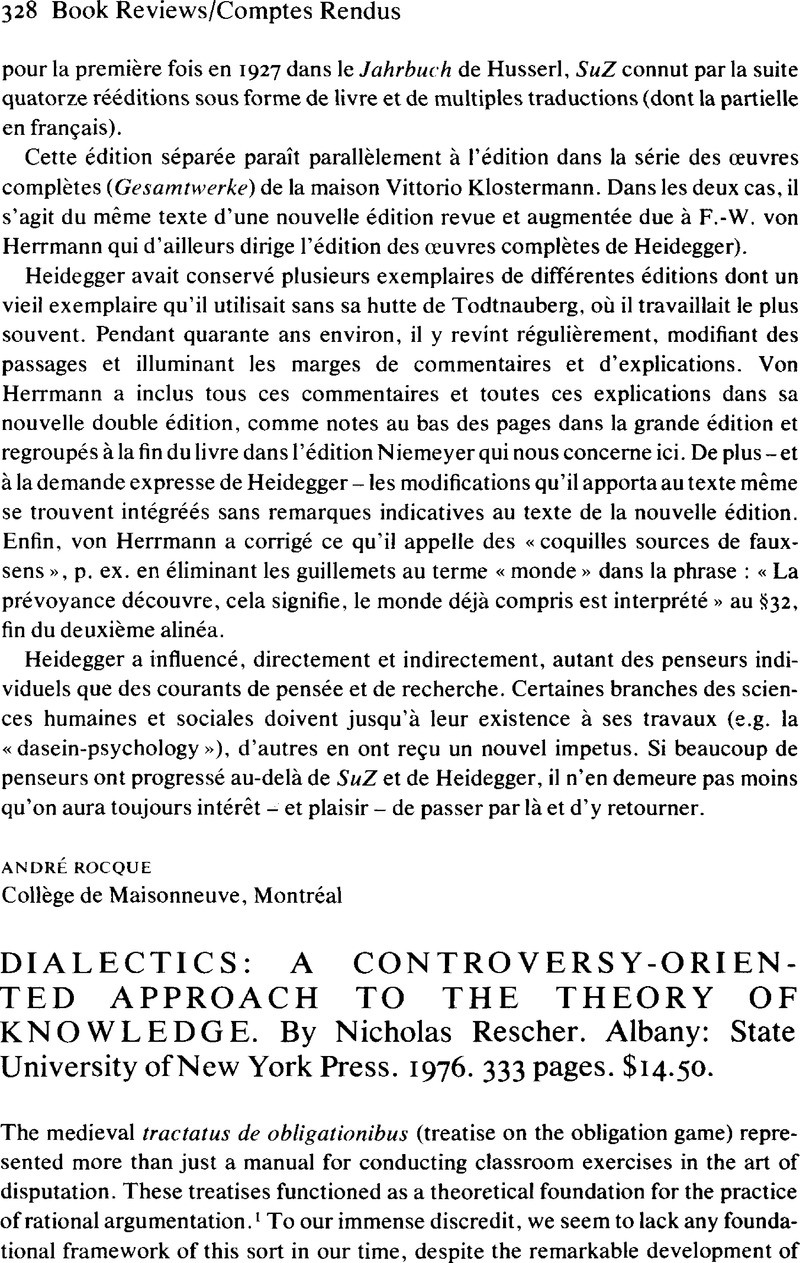Published online by Cambridge University Press: 05 May 2010

1 Brown, Mary Anthony, ‘The Role of the Tractatus de Obligationibus in Mediaeval Logic,’ Franciscan Studies, 26, 1966, 26–35.CrossRefGoogle Scholar
2 See Brown op. cit., p. 28.
3 It is proposed (p. 4) that there is a third party called the determiner who presides as a “referee” or “judge” over the dispute. However very little use or mention is made of this party in the subsequent account of the structure of disputation.
4 These concepts are more fully outlined in Woods, John and Walton, Douglas, ‘Petitio Principii,’ Synthese, 31, 1975, 107–127.CrossRefGoogle Scholar
5 This prohibition seems drastic, but might be reasonable in the context of a particular game designed for certain specific purposes.
6 Eberle, Rolf, ‘A Logic of Believing, Knowing, and Inferring,’ Synthese, 26, 1974, 356–382.CrossRefGoogle Scholar
7 Dialectics, p. 71. See also da Costa, Newton C.A. ‘Remarks on Jaskowski's Discussive Logic,’ Reports on Mathematica Logic, 4, 1975, 7–16Google Scholar, and da Costa, N.C.A. and Dubikajtis, L., ‘On Jaśkowski's Discussive Logic,’ in Non-Classical Logics, Model Theory and Computability, ed. Arruda, A.I., da Costa, N.C.A. and Chaqui, R., North-Holland, 1977. 37–55.CrossRefGoogle Scholar
8 Lorenzen, Paul, ‘Ein Dialogisches Konstructivitätskriterium,’ in Infinitistic Methods, London, Pergamon Press, 1961, 193–200.Google Scholar
9 For example Methodological Pragmatism, Oxford, 1977.
10 Plausible Reasoning, Assen-Amsterdam, Van Gorcum, 1976.